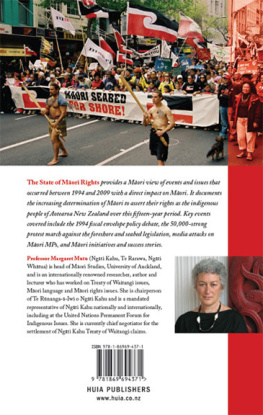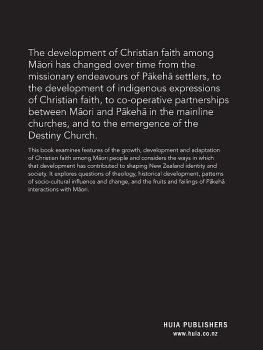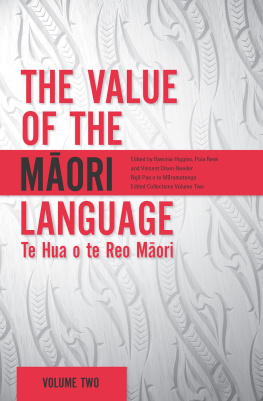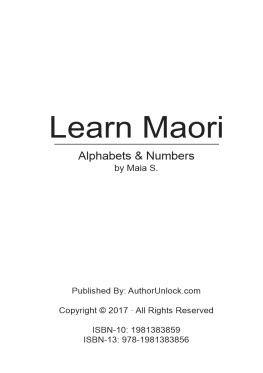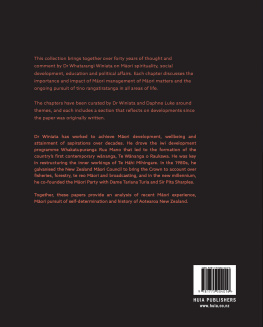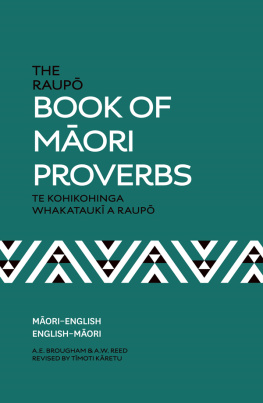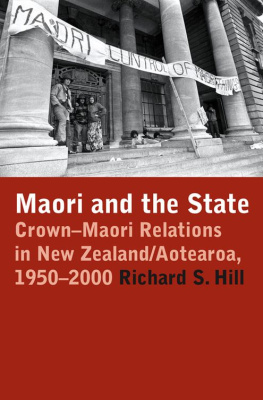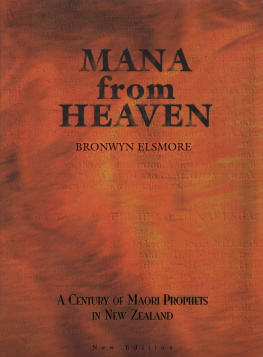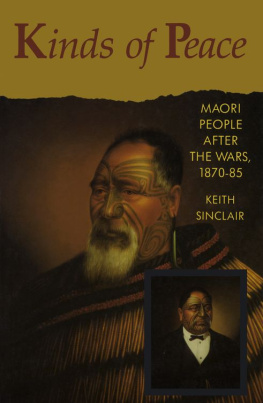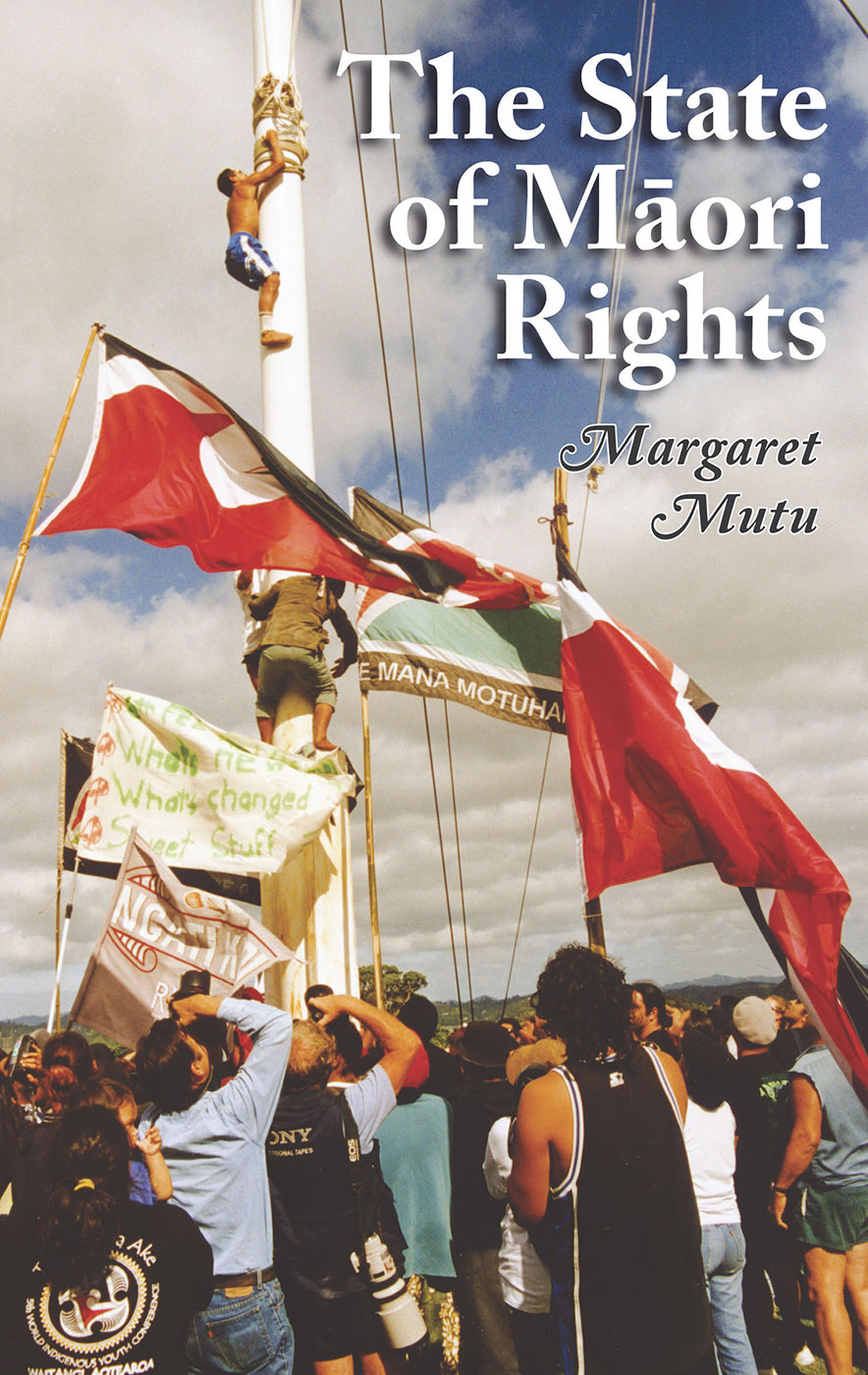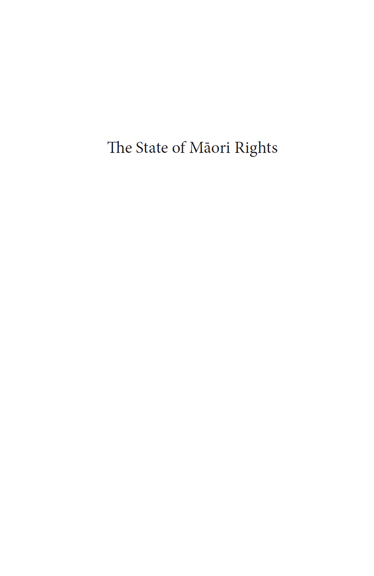First published in 2011 by Huia Publishers
39 Pipitea Street, PO Box 17335
Wellington, Aotearoa New Zealand
www.huia.co.nz
ISBN 978-1-86969-437-1 (print)
ISBN 978-1-77550-280-7 (EPUB)
ISBN 978-1-77550-281-4 (Kindle)
Copyright Margaret Mutu 2011
Copyright and publishing rights for the poem No Ordinary Sun are held by the Estate of Hone Tuwhare (). Permission of the Estate to reproduce the poem is kindly acknowledged.
Front and top back cover images: Gil Hanly
All rights reserved. No part of this publication may be reproduced, stored in a retrieval system, or transmitted in any form or by any means, electronic, mechanical, including photocopying, recording or otherwise, without prior permission of the publisher.
National Library of New Zealand Cataloguing-in-Publication Data
Mutu, Margaret.
The state of Mori rights / Margaret Mutu.
Includes bibliographical references and index.
ISBN 978-1-86969-437-1
1. Maori (New Zealand people)Civil rights. 2. Maori (New
Zealand people)Government relations. [1. Kwanatanga. Reo.
2. Mana motuhake. Reo] I. Title. II. Contemporary Pacific.
323.1199442dc 22
We gratefully acknowledge Ng Pae o te Mramatanga for its provision of a Publications Support Grant, which assisted in the publication of this work.

Ebook conversion 2015 by meBooks
List of Abbreviations
ABS | Aotearoa Broadcasting Systems |
ACT | Association of Consumers and Taxpayers |
ANZAC | Australia and New Zealand Army Corps |
BIL | Brierley Investments Limited |
CA | Court of Appeal |
CEO | Chief Executive Officer |
CERD | (United Nations) Committee on the Elimination of Racial Discrimination |
ERMA | Environmental Risk Management Authority |
Hon. | Honourable |
HSBC | Hong Kong and Shanghai Banking Corporation |
MA | Master of Arts |
MLR | Mori Law Review edited by Tom Bennion |
MMP | Mixed Member Proportional representation |
MP | Member of Parliament |
NZLR | New Zealand Law Reports |
NZPA | New Zealand Press Association |
OECD | Organisation for Economic Co-operation and Development |
OTS | Office of Treaty Settlements |
PhD | Doctor of Philosophy |
QSM | Queens Service Medal |
SFO | Serious Fraud Office |
TPK | Te Puni Kkiri The Ministry for Mori Development |
TWOA | Te Wnanga o Aotearoa |
UNDRIP | United Nations Declaration on the Rights of Indigenous Peoples |
USPGA | United States Professional Golf Association |
CHAPTER 1:
Introduction
This book brings together a series of annual reviews of issues affecting Mori that have been published over the past fifteen years. In 1994, the editor of The Contemporary Pacific, a journal of Pacific Island affairs published out of the Centre for Pacific Island Studies at the University of Hawaii (Mnoa), asked me to provide a review of issues affecting Mori over the past year. Ranginui Walker had been providing annual reviews for the journal for several years and wanted to pass the role over to me. There was plenty to write about; during 1994 and 1995 Mori were once again at loggerheads with the New Zealand government, this time as we battled them over their iniquitous fiscal envelope policy for settling Treaty of Waitangi claims. So I agreed, and found it cathartic to be able to review and record our experiences over the previous twelve months, having participated in many hui not only amongst my own people of Te Hiku o te Ika (the Far North) but also on marae throughout the country. I had been actively involved in our own land issues and then our Treaty claims for nearly two decades and had the benefit of many hours of discussion with my own Ngti Kahu kaumtua and kuia, as well as many others around the country, about what was happening to the Mori world.
Issues and events as viewed through Mori eyes
Every year after that The Contemporary Pacific asked me to review the previous twelve months from July to the following June and that format has been retained here. Every year there were far more issues and events to report on than could be included in the review. Those I included were those I had heard being discussed on marae, in other hui, in Mori news media such as Mana magazine and on the Mori radio stations which had operated since the 1980s and then, since 2004, on Mori Television. Even so there were still several important issues that I did not cover. The approach I took was to try to capture as best I could the wide range of thinking expressed by Mori on issues and events affecting us as Mori. And while many of the events and issues I reviewed were covered in the mainstream (Pkeh) media, the way they were reported there rarely, if ever, reflected Mori thought on the matter.
Approach based on He Whakaputanga and Te Tiriti
My approach was strongly influenced by the teachings of my kaumtua. Much of what I reviewed dealt with our relationship with Pkeh and the ongoing struggle to free ourselves of their domination, oppression and discrimination. For my kaumtua, the relationship we entered into with the British in the nineteenth century was that set out first in He Whakaputanga o te Rangatiratanga o Nu Tireni: The Declaration of Independence of 1835, where our mana and tino rangatiratanga our sovereignty, our ultimate authority, control and ownership of the country was recognised and confirmed, followed by the formalisation in Te Tiriti o Waitangi of our relationship with the tino rangatira, the ultimate chief of the British: the Crown.against Mori being harmed by the lawless behaviour of her subjects.
Yet the British Crown has never been able to control her own subjects who came to live in our land, and for far too long they behaved in a manner that severely demeaned not only her mana, but also that of her descendants right down to today. For my kaumtua, setting that relationship right and, in doing so, upholding both He Whakaputanga and Te Tiriti, were the single most important aims they pursued in respect of our relationships with Pkeh and passed on to my generation to pursue after them.
The underlying problem of racism in New Zealand
The underlying cause of the violations of Te Tiriti was invariably racism, that deeply embedded notion of white supremacy which imbued the incoming British with a belief that they could dispossess Mori as and however they chose. Racism can be defined as the attitudinal or ideological phenomenon that accepts racial superiority, and, when present in those with power, justifies them using that power to discriminate against and deprive others of what is rightfully theirs on the basis of their race.

